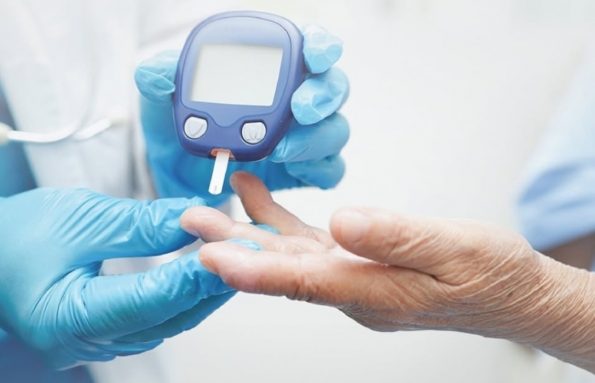Life-saving substance cannot be synthesised and stocks are always at risk of running low
Abu Dhabi: The emphasis on blood donation should last year-round, going well beyond Blood Donor Day (June 14), a senior health official has said.
As Dr Eiman Al Zaabi, consultant and chair of pathology and laboratory medicine at Sheikh Shakhbout Medical City (SSMC), told Gulf News, a robust supply of blood that ensures patients get access to safe and sufficient blood and blood products at any point of time is a key component of an effective health system.
“Safe blood saves lives. Regular blood donation by a sufficient number of healthy people is needed to ensure that blood will always be available whenever and wherever it is needed,” said Dr Eiman.
Stocks are of life-saving importance – these cannot be synthesised and are always at risk of running low. This is where the importance of blood donation starts.
Donating blood helps in boosting cardiovascular health. It reduces the viscosity of blood, which further helps in alleviating the risk of heart attacks and strokes. Blood donation helps in keeping a healthier flow of blood, which reduces the strain on the heart.
“Donating blood is one of the most altruistic gestures we can make to our fellow human beings. Blood is a resource of critical, life-saving importance that cannot be manufactured and is always in demand. But it cannot be stored for very long and is frequently on the verge of running low,” Dr Eiman said.
Why donate blood regularly?
Dr Eiman said blood donation is essential for the following reasons:
Saving lives: Blood is essential for surgeries, trauma care, cancer treatment, chronic illnesses, and other medical conditions that require transfusion.
Who can donate blood?
Dr Eiman said many people are eligible to become a blood donor. There are some specific requirements for them to meet:
– Age: Donors typically need to be between 18 and 65 years old. In some places, 17 to 18-year-olds can donate with parental consent, and some programs allow older donors to continue if they meet health requirements.
– Weight: Minimum weight requirements generally start at 50kg (110 lbs) to ensure donor safety.
– Health: Donors must be in good health, without chronic or infectious diseases, with no history of recent surgeries and must not be taking medications that could pose a risk to the recipient. Conditions such as human immunodeficiency virus (HIV), hepatitis, and certain cancers disqualify individuals from donating.
– Hemoglobin levels: Donors must have adequate hemoglobin levels 12.5 for females and 13.5 for males. A finger-prick test is usually done before donation to check for anemia.
– Travel History: Recent travel to areas with endemic diseases (e.g., malaria, Zika virus) may temporarily defer eligibility.
Post-donation advice
There are some important post-donation instructions for the donor to follow in order not to feel fatigue, Dr Eiman added.
Rest: After donating blood, sit and rest for at least 15-20 minutes. This helps your body begin to adjust to the temporary reduction in blood volume.
Hydration: Drink plenty of fluids, especially water and non-caffeinated beverages, over the next 24 to 48 hours. This helps replenish the fluids lost during donation and reduces the risk of dehydration.
Nutrition: Eat a healthy meal shortly after donating. Focus on foods rich in iron (e.g., lean meats, leafy greens, beans) and vitamin C to aid in iron absorption. Avoid heavy or greasy foods immediately after donation.
Avoid strenuous activities: Refrain from heavy lifting, vigorous exercise, or any strenuous physical activities for the rest of the day. This helps prevent dizziness and fatigue as your body recovers.
Iron supplementation: Some donors, especially those who donate regularly, may benefit from taking an iron supplement. Consult with a healthcare provider before starting any supplementation.
“By following these instructions, blood donors can minimise the risk of fatigue and ensure a smooth recovery, allowing them to continue contributing to the community’s blood supply safely,” Dr Eiman said.
Community health: Donating blood helps maintain an adequate and safe blood supply in the community, ensuring that hospitals and emergency services are prepared for any situation, including natural disasters and accidents.
Social responsibility: Donating blood is a powerful way to contribute to the well-being of others. It fosters a sense of solidarity and social responsibility, reinforcing community bonds and mutual support.
“By following these instructions, blood donors can minimise the risk of fatigue and ensure a smooth recovery, allowing them to continue contributing to the community’s blood supply safely,” Dr Eiman said.
Source: Gulf News






